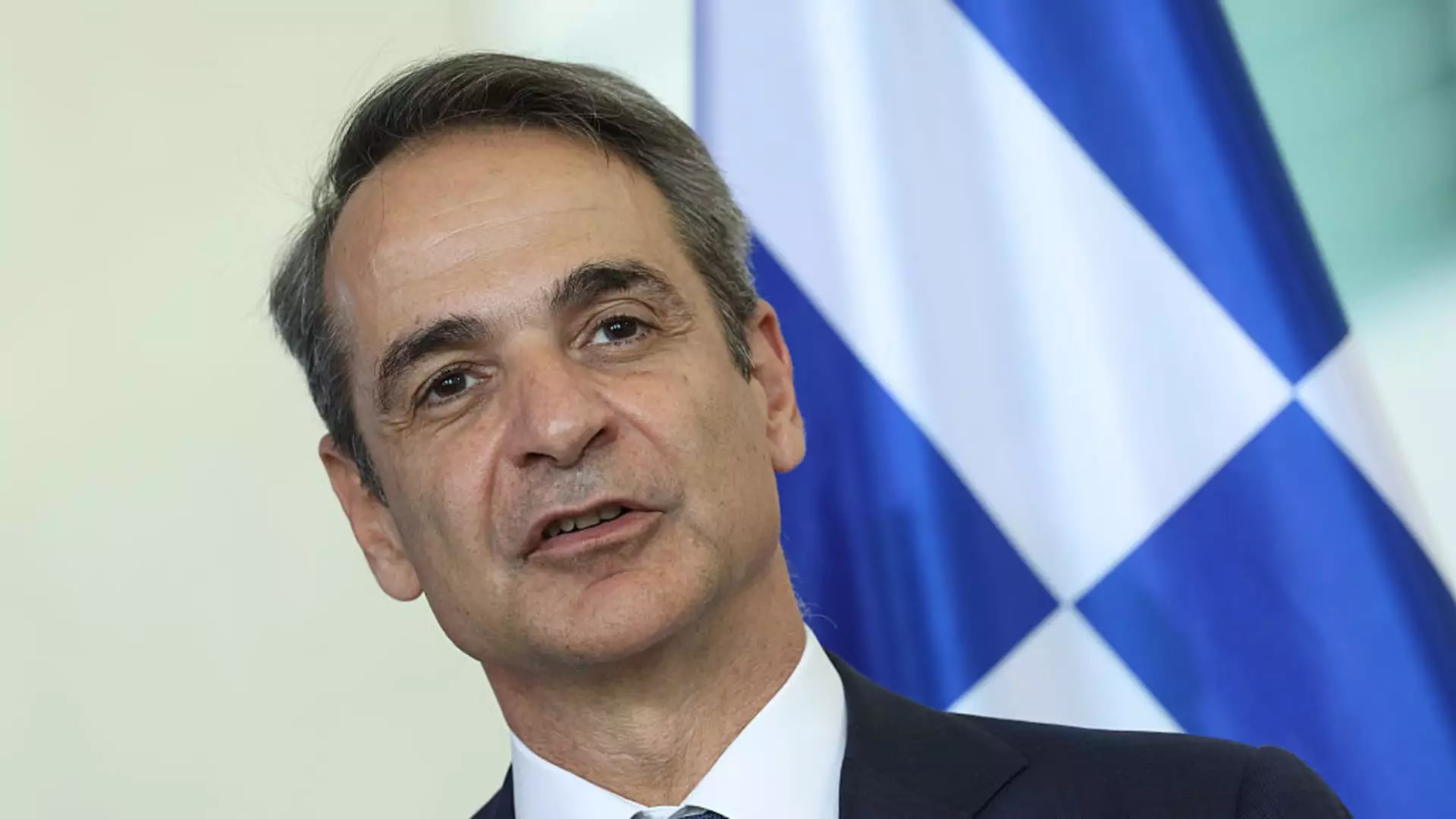In a world where security threats are more persistent than ever, the pressure on NATO allies to ramp up their defense budgets has become an increasingly contentious issue. U.S. President Donald Trump’s insistence that NATO countries should devote 5% of their gross domestic product (GDP) to defense might seem bold on the surface, but the reality as expressed by Greece’s Prime Minister Kyriakos Mitsotakis reveals a deep chasm between these expectations and the capability of many member nations to meet them. Mitsotakis’s candid remarks about the impracticality of such demands raise significant questions about the future of collective defense in Europe and the fundamental relationship between U.S. and European allies.
The 5% Illusion
The figure of 5% may sound impressive at first glance, symbolizing a serious commitment to national security. However, as Greece’s Prime Minister pointed out in his interview with CNBC, this target is more an illusion than a feasible reality for most NATO nations. Mitsotakis argues that a ceiling of 3.5% is more attainable, emphasizing economic constraints that many European nations face. This pragmatic assessment brings to light a critical aspect of the discussion: the balancing act between political aspirations and economic responsibilities. Countries need to safeguard their social frameworks while contemplating dramatic increases in military spending, which often translates to real-world sacrifices in areas such as healthcare, education, and infrastructure.
The Historical Context of Defense Budgets
The backdrop of NATO’s defense expenditures has long been characterized by inequity and inconsistency. Even before Trump’s outspoken criticism, many nations struggled to fulfill the existing target of 2% of GDP. This situation speaks not only to national priorities but also to the underlying question of what it means to be a responsible member of an alliance. Mitsotakis’s admission of the inadequacies of NATO members to meet their obligations in the past hints at a much larger existential dilemma—if countries like Greece, which historically have high defense spending due to regional tensions, still grapple with these financial burdens, how can less conflict-prone nations justify breaking the bank for military expenses?
The European Commission’s Role
Another central figure in this dialogue is the European Commission, which has long enforced fiscal rules limiting member countries’ debt and deficits. Mitsotakis’s assertion that these constraints need to be reconsidered underscores a growing awareness that the nature of security is evolving. The recent moves by the European Commission to relax these rules in light of shifting geopolitical landscapes may signify a pivot in Europe’s defense funding philosophy. By potentially facilitating higher spending on defense, these adjustments could empower nations to invest without the paralyzing fear of excessive debt, thus enabling a more united and robust response to security challenges.
A Path Forward for NATO Allies
A path forward for NATO must reflect a pragmatic blend of increased defense spending while still adhering to the economic realities faced by its member countries. Mitsotakis’s insight—that Trump’s demand may necessitate a long-term strategy that includes critical infrastructure expenditures—suggests a more holistic approach could be the answer. Strengthening cybersecurity, intelligence sharing, and humanitarian assistance could also be integrated into the overall defense budget structure, allowing nations to feel they are contributing adequately to collective security without jeopardizing their citizens’ well-being.
The Burden of Collective Defense
Ultimately, the burden of collective defense does not rest solely on financial contributions. It involves a culture of cooperation, shared intelligence, and a unified strategy against common threats. While financial commitments can temporarily satiate political pressures, they must be aligned with meaningful outcomes and public support. Countries like Greece demonstrate a commitment to defense under real threats, yet there’s a fine line between responsible governance and militaristic squandering of resources. As discussions on new spending targets approach the next NATO summit, member nations must confront these realities and engage in a candid assessment of their capabilities, responsibilities, and the implications of their spending choices.


Leave a Reply